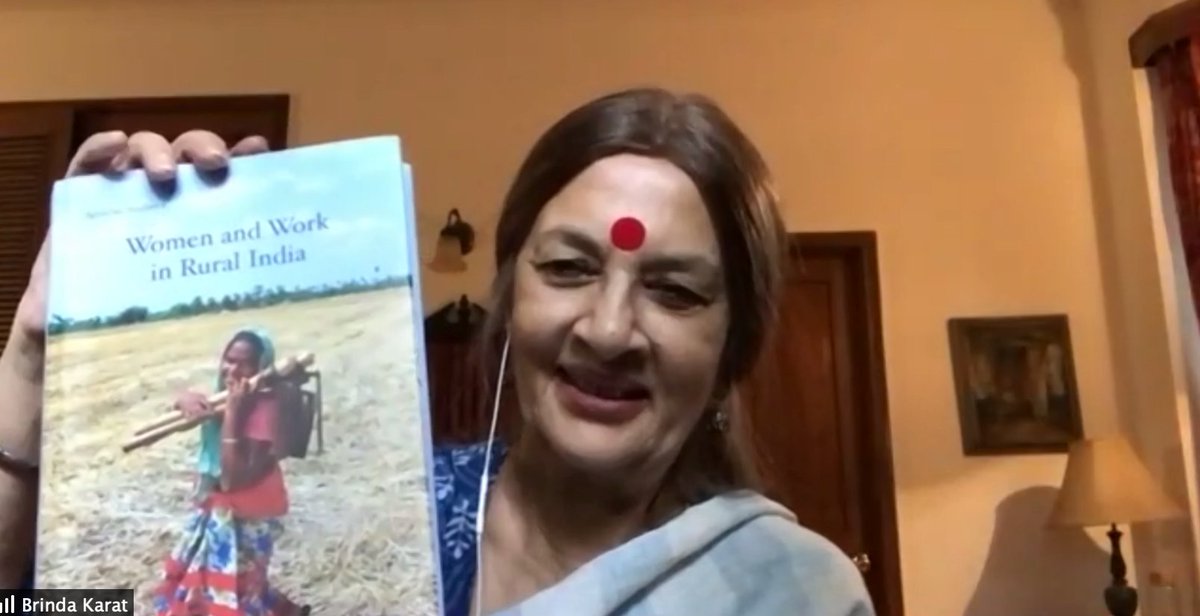Brinda Karat, @brindacpim, officially releases our book & #39;Women and Work in Rural India& #39; after Indu Chandrashekhar from @Tulikabooksdel and Vinod Koshti from @RLS_South_Asia hand it over to her.
"When India was forced to acknowledge migrant workers during Lockdown, the experiences of women migrant workers were once again invisibilized." - Brinda Karat
"The question that comes through my experience is that how do you actually measure or count or categorize the multiple tasks and work that a woman does?" - Brinda Karat
"For example, you take an Adivasi woman today, she could be a peasant and a construction worker who is on MNREGA while also doing domestic work and multiple other work. What category would she come under?" - Brinda Karat
"The methodology of time-use surveys to accurately count which will include the ILO categories and others is a very critical aspect to measure exactly the hours and nature of women& #39;s work in India." - Brinda Karat
"Time-use surveys are important to understand the changes capitalism has wrought on the peasantry of India and the proletarianization of the rural classes." - Brinda Karat
"If a woman is hiring out her labour more than expending it on her own farm, which has come out in V. K. R& #39;s essay in this book, then the process of proletarianization of a woman peasant is also dictated by the increasing hours of her work even when she is receiving less wages."
"My question is when we talk about rural women and the impact of patriarchal society, how far does being a rich peasant woman influence the hours of work and burden of work and how far are we able to differentiate that from unpaid women working in rural India."
"I was absolutely shocked after learning from @MadhuraFAS& #39;s chapter that a woman is doing 91 hours of work." - Brinda Karat
"The whole issue posed by Comrade Hemalata about the large number of women employed by the government as Scheme Workers is very important on how to integrate the struggles of non-agricultural and agricultural workers." - Brinda Karat
"At present, MNREGA is fraudulent because women cannot give a fair minimum wage. "
One thing that I really appreciate about FAS is their integration of caste to understand struggles. The essay in this book by Prof. Thorat and Khalid Khan gives you a brutal picture of the lack of choice enforced on Dalit and Adivasi women." - Brinda Karat
"The contract nature of employment and work of Dalit and Adivasi Women is work which by the very nature of relationship between the employer and worker puts her in the most vulnerable working condition." - Brinda Karat
"FAS has contributed to the social understanding of how class and caste operates for women in rural India. We cannot succeed in our struggle against capitalism without this." - Brinda Karat

 Read on Twitter
Read on Twitter


